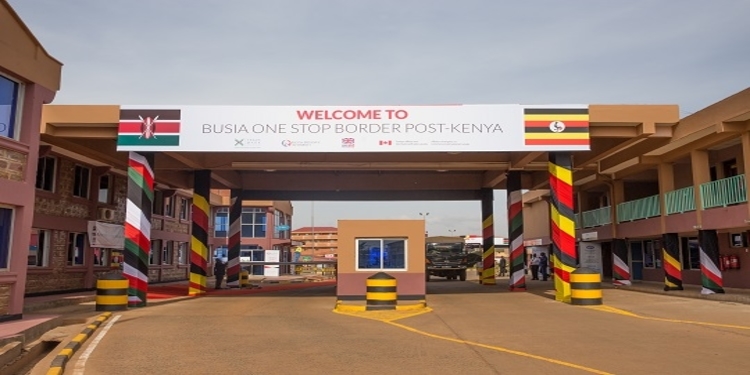
The Government of Kenya has obtained US$18 million in funding from Denmark to help foster regional trade in East Africa and fight the Covid-19 pandemic.
The funding will be channeled through TradeMark East Africa (TMEA), which works with governments in the region to reduce trade barriers through automation and the creation of the necessary infrastructure, such as One Stop Border Posts (OSBPs).
Danish funding comes from two financial agreements with US$15 million to support Kenya’s green trade transformation and sustainable job development activities under the Denmark and Kenya Strategic Frameworks from 2021 to 2025.
The second $3 million agreement would help the continued response of Covid-19 under TradeMark East Africa’s Safe Trade Emergency Facility (Safe Trade) Programme. TMEA will collaborate with government agencies and the private sector with green trade financing to implement safe and effective transport and infrastructure in order to reduce trade barriers. It will also concentrate on raising trade practices, resolving health and plant health problems, and improving the competitiveness of industry in Kenya.
It is also expected that government agencies in Kenya will collaborate with TMEA on system automation to ease key trade processes and reduce the use of paper and the time taken to trade.
Funding from Denmark for TMEA’s Safe Trade, which is being introduced in 10 countries, will allow ongoing efforts to provide critical services at key entry and exit points in the area while safeguarding front-line border staff.
“Kenya’s efforts to move to green trade and to build sustainable employment under the Denmark and Kenya Strategic Framework for 2021 to 2025 will be funded by US$15 million.”
Safe Trade focuses on the battle against Covid-19, including the provision of protective equipment, the promotion of the introduction and implementation of the Regional Electronic Cargo and Driver Tracking System (RECDTS) and the building of safe trading zones for women traders across different borders.
Ole Thonke, Denmark’s ambassador to Kenya, said that his government is committed to fostering trade and combating the Covid-19 pandemic in the East African region.
Kenya’s East Africa and Regional Development Senior Secretary Kevit Desai welcomed the Danish funding and said it would help increase trade in the region. “This funding also contributes to the contribution of Kenya to the United Nations Sustainable Development Goals and to the Paris Agreement,” Desai said.
Denmark is also funding non-motorized transport in the ongoing construction of Mbaraki Road in the coastal town of Mombasa, Kenya, to include the implementation of climate change adaptation storm water drainage services, the installation of street lighting, the construction of footpaths, walkways, and access ramps to increase the movement and safety of people with disabilities.
TMEA chairman Erastus Mwencha said: “The commitment to foster sustainable economic development is now stronger, as has always been the case since the Covid-19 pandemic has plunged most economies in the country and the world into recession.” He added that the Organization is keen to promote projects that can reinvigorate the economy and adjust value chains to the post Covid-19 environment, including opportunities for local development and export expansion.
TradeMark has led to a reduction in transit times for main routes by more than 16 per cent in the East African Community and a 70 per cent drop in transit times for single-stop border crossings between 2014 and 2019.
Funding arrives at a crucial moment in Kenya’s and Africa’s development trajectory; at the launch of trade under the African Continental Free Trade Region (AfCFTA).
TMEA Country Director Ahmed Farah said that his programme in Kenya would continue to help the government in developing market ties to enhance Kenya’s access to regional and international markets, thereby stimulating local jobs and encouraging green, sustainable and inclusive trade.
